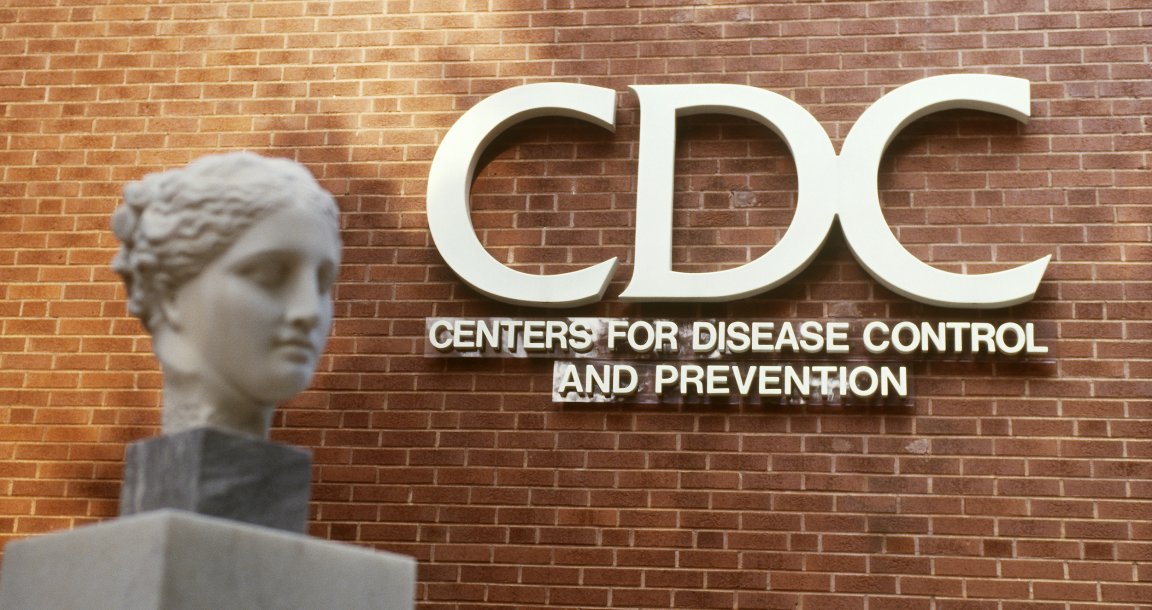
The Rudderless CDC
Almost 700 jobs at the Centers for Disease Control and Prevention (CDC) in Atlanta are vacant due to the recent federal government hiring freeze. This same issue is causing a variety of problems at the U.S. Department of Health and Human Services (HHS) and the National Institutes of Health (NIH). The hiring freeze was technically lifted last month, but because the agencies have been charged with reorganizing and reducing their workforces, the practical effect has been a continued freeze.
The Washington Post reports that researchers and officials at the CDC say the vacancies are affecting “programs supporting local and state public health emergency readiness, infectious disease control and chronic disease prevention.” An unnamed senior CDC official (who spoke to The Washington Post anonymously) told the organization that critical public health analysts, scientists, and advisers are among the unfilled positions. These are the people who help ensure that scientists working in labs and the field all over the country have sufficient equipment and support to remain operational.
The CDC’s problems are made even worse, the senior official said, because the agency is operating without a director. The former permanent director, Tom Frieden, resigned in January from the position, which is one of the most important roles in the fight against infectious diseases in the U.S. and everywhere else in the world. Since that time, the CDC has essentially been rudderless, trying to cope with a difficult transition without the benefit of leadership.
According to the Sierra Club, whose Freedom of Information Act (FOIA) request yielded the data on the results of the hiring freeze, the frozen jobs remaining open at the CDC are mostly medical experts and scientists (26 percent of positions) and policy experts (19 percent). In other words, the freeze is not affecting “bureaucratic” jobs and is instead preventing the CDC from hiring chemists, economists, epidemiologists, microbiologists, statisticians, and other high-level professionals.

The CDC isn’t the only agency feeling the impact of these policies. HHS is facing the same problem and is trying to get by without dozens of people who help the department respond to public health and cybersecurity emergencies. Meanwhile, NIH staff indicate that the vacancies are causing patient care, clinical work, and recruitment to suffer.
A doctor at the National Cancer Institute, who spoke to The Washington Post anonymously to avoid funding retaliation, has been unable to replace a key assistant because the agency’s human resources department “was overwhelmed by the demand and could not process recruiting actions.” The physician added that “it’s complicated to get exceptions granted” for an open senior laboratory position at the institute.
Public Health Services
In January, the White House ordered a hiring freeze in support of President Trump’s new budgetary goals. In March, the administration released its “skinny budget,” which proposed major cuts to several agencies, including the Environmental Protection Agency (EPA) and HHS. Since that time, Congress pushed through a compromise budget with fewer cuts. However, it is only in place until October.
In the meantime, the White House and the Office of Management and Budget (OMB) have directed all federal agencies to submit plans by June 30 reflecting how they will reduce their civilian workforces. The administration will soon release its new budget, which is expected to be in line with its previously stated goals.
The impact of these agencies extend far beyond their cost, however. The Washington Post reports that multiple positions remaining vacant are in the Office of Public Health Preparedness and Response (PHPR), the body that maintains the country’s store of emergency medical countermeasures and regulates some of the most dangerous viruses and bacteria in the world. Jobs in the infectious disease offices also remain open, as do positions in the office for noncommunicable diseases, injury, and environmental health.
Liz Perera, the public health policy director of the Sierra Club, told The Washington Post that the administration’s “thoughtless freeze on hiring public servants prevented the CDC from filling critical roles at programs essential to preventing chronic and infectious diseases, advancing immunization, and safeguarding environmental health.”

Drastic budget cuts to science and public health have serious consequences that are worrying professionals who work in these areas. Furthermore, experts argue that research affects more than our understanding of the world. It also supports local economies and fosters new industries. Now, at the dawn of the age of automation, this is more important than ever.
In any case, slow, considerate changes in policies that affect public health are essential to ensuring health is safeguarded. They also make good fiscal sense. Former CDC director Dr. David Satcher touts the importance of investing in public health in order to prevent disease and promote health — and save money. Prevention “is consistent with a conservative approach,” because it brings down the cost of healthcare, Satcher told the Georgia Health News in January. “The business argument for the CDC is a good one,” he added.